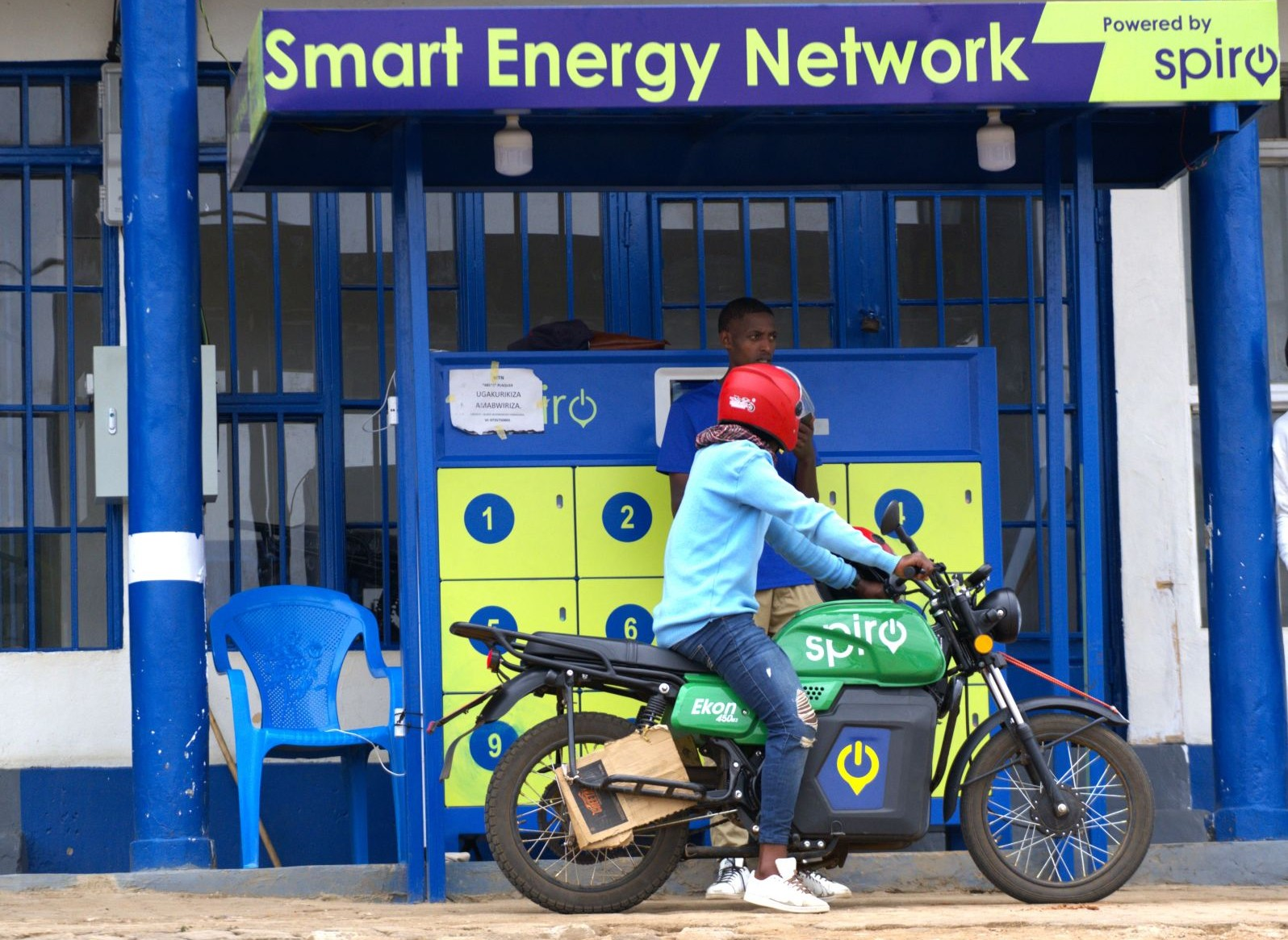In early 2025, in downtown Kampala, a motorcycle taxi rider swapped his gas-powered boda-boda for a sleek, blue electric bike from Spiro. Instead of stopping every few hours for petrol, he now docks at a nearby battery-swap station, replaces his battery in under two minutes, and gets back to the road. His daily cost dropped, his earnings rose, and the city’s air breathed a little easier.
 Image by Spiro
Image by Spiro
That moment reflects the ripple triggered by Spiro’s historic US$100 million raise, Africa’s largest investment yet in two-wheel electric mobility. The bulk (US$75 million) came from FEDA, while the remaining capital came from other strategic backers.
“Africa is at an inflection point in personal mobility. Riders are rapidly shifting from petrol motorcycles to Spiro’s more affordable and accessible battery-swapping ecosystem.”

The announcement highlighted that Spiro intends to deploy over 100,000 bikes by the end of 2025, targeting major markets across East and West Africa.
Each swap station, typically sited at petrol stations, shopping centres or transport hubs, allows riders to exchange depleted batteries in minutes, a business model designed for Africa’s informal transport economy.
Spiro’s pitch: combine an African-tailored electric motorcycle with a continent-wide battery-swapping infrastructure that replaces the old model of petrol-dependence. With over 60,000 vehicles already on the road and more than a thousand swap stations active, the funding is earmarked to accelerate expansions: new countries, larger manufacturing footprint, deeper local content, and stronger tech systems.
A Market Ready for Disruption
Africa has millions of motorbike taxis known as boda-bodas, okadas, or motos. In many cities they are the backbone of urban mobility. Yet the reliance on imported petrol bikes, rising fuel costs and unreliable income make them vulnerable. Spiro’s model flips that script: riders purchase or lease electric bikes at lower upfront cost (~US$800–1,000) and benefit from lower running costs (30-40% less per km) thanks to the swap infrastructure.
Battery-swapping is a global trend, but Africa has lagged. Spiro’s scale sets it apart: over 1,200 stations, more than 26 million swaps done. That gives data, infrastructure and scale.
Investor Confidence: Beyond the Check
The lead investor, FEDA/Afreximbank, is a continent-wide development institution. Their involvement signals that e-mobility is now aligned with Africa’s industrialisation and trade agenda.
“We are delighted to partner with Spiro on this transformative initiative. Our investment reflects Afreximbank’s strong commitment to building a competitive and sustainable mobility sector in Africa. Together, we are laying the groundwork for a new era of intra-African trade and industrialization by stimulating local vehicle manufacturing, strengthening regional integration, and enhancing trade flows. At the same time, we are focused on creating skilled employment opportunities and reducing the continent’s reliance on imported second-hand vehicles.”

For international observers, the US$100 million round isn’t just about vehicles. It’s a signal: Africa can handle large-scale, capital-intensive manufacturing and infrastructure projects. It suggests the continent may no longer be the passive recipient of technology but the originator of scale models tailored for its own context.
Opportunities for Africa’s Economy
For citizens watching Africa’s economic transformation, Spiro’s raise means several things.
1. It signals Africa is shifting from consumption of imported tech to scale-native, purpose-built infrastructure. A US$100 million round in a mobility-plus-manufacturing company means local capacity is maturing.
2. The mobility sector, often overlooked, is becoming central. If riders on electric bikes save US$3 per day in fuel and maintenance (per Spiro’s data), then improved mobility becomes an income boost for thousands of everyday workers. That has ripple effects: employment, local manufacturing, value chains, and cleaner cities.
3. It reinforces that climate finance and industrialisation in Africa can be mutually reinforcing. This isn’t just about electric vehicles; it’s about on-the-ground infrastructure, jobs, and trade flows—and it's often done on a commercial basis.
4. For global citizens and investors, it is a reminder that Africa isn’t just about raw materials or production labour anymore. It’s about building new-economy ecosystems: batteries, data, mobility. That shifts how the world should view Africa’s role in the next century of growth.
Spiro’s US$100 million raise is more than a financing milestone; it’s an inflection marker for Africa’s transport, energy and industrial sectors. The company has bet big: on battery-swapping infrastructure, on local content, on the continent’s informal transport economy. Now the real work begins: scaling those operations, proving the economics, building local supply chains and navigating the tricky intersections of regulation, finance and mobility culture.
For citizens of the world interested in Africa’s economy, this moment offers a lens to ask: Where is value being created? Who are the workers, riders, and entrepreneurs benefiting? What local systems are evolving? And how will this play out across other sectors such as agriculture, logistics, and digital services?
Keep watching the swap stations, the assembly lines, and the town-centre riders because they’re not just changing transport. They’re rewiring Africa’s economic engine.